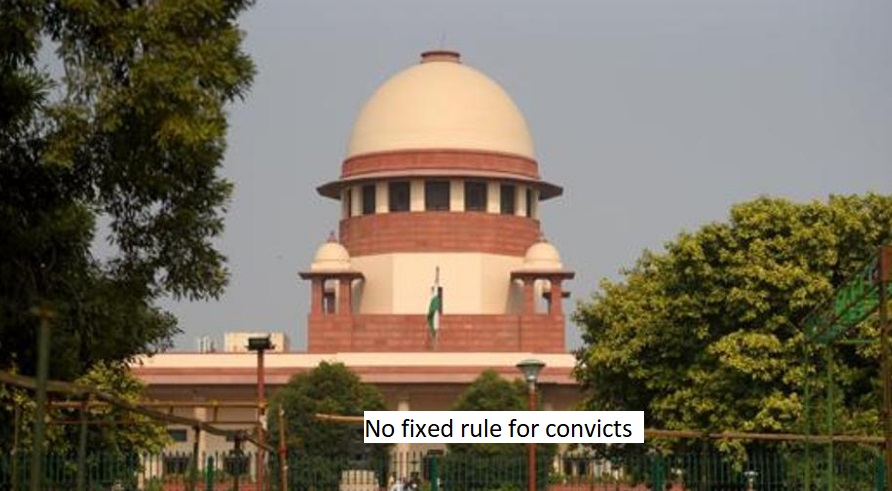


The recent clarification by the Supreme Court emphasized that convicts are not bound by a rigid rule to complete a particular duration of their sentence before applying for its suspension.
A bench consisting of Justices Abhay S Oka and Pankaj Mithal reviewed a special leave petition challenging the Gujarat High Court's decision to deny sentence suspension.
In the case at hand, the High Court had adopted a specific approach when assessing the plea of two convicts seeking the suspension of their imprisonment sentence. Rather than considering their entire period of incarceration, the High Court focused solely on the time served by these convicts following their conviction. This means that the pre-conviction period, during which the individuals were not yet officially sentenced, was not factored into the calculation of the sentence undergone.
The distinction between pre-conviction and post-conviction periods is pivotal. The pre-conviction period encompasses the time between a person's arrest, trial, and eventual conviction, during which they might be in custody but have not yet been formally sentenced. The post-conviction period, on the other hand, begins after the conviction is handed down and the sentence is pronounced.
In this case, the High Court's decision to consider only the post-conviction jail time of the two convicts as the period of sentence they had undergone had significant implications. It implied that the time spent in custody before the formal sentencing was not included in the calculation of their sentence, potentially affecting their eligibility to seek the suspension of their imprisonment sentence.
The High Court's approach in this matter raised questions about whether the pre-conviction period should also be counted as part of the sentence undergone, as it represents a period of deprivation of liberty before a formal sentence is imposed. This distinction was a key consideration in the legal proceedings and the subsequent clarification by the Supreme Court.
The Supreme Court, characterizing the High Court's approach as incorrect, made the following observation:
"In an unexpected turn of events before the High Court, a submission was presented on behalf of the State, suggesting that only the post-conviction sentence should be taken into account. Regrettably, the High Court accepted this stance. Not only is this approach incorrect, but it is also important to emphasize that there is no fixed rule mandating a specific duration for an accused to serve before their plea for the suspension of the sentence can be entertained."
TAGS: Supreme Court High Court Convicts Application Antecedents Incarceration Maximum sentence Offense